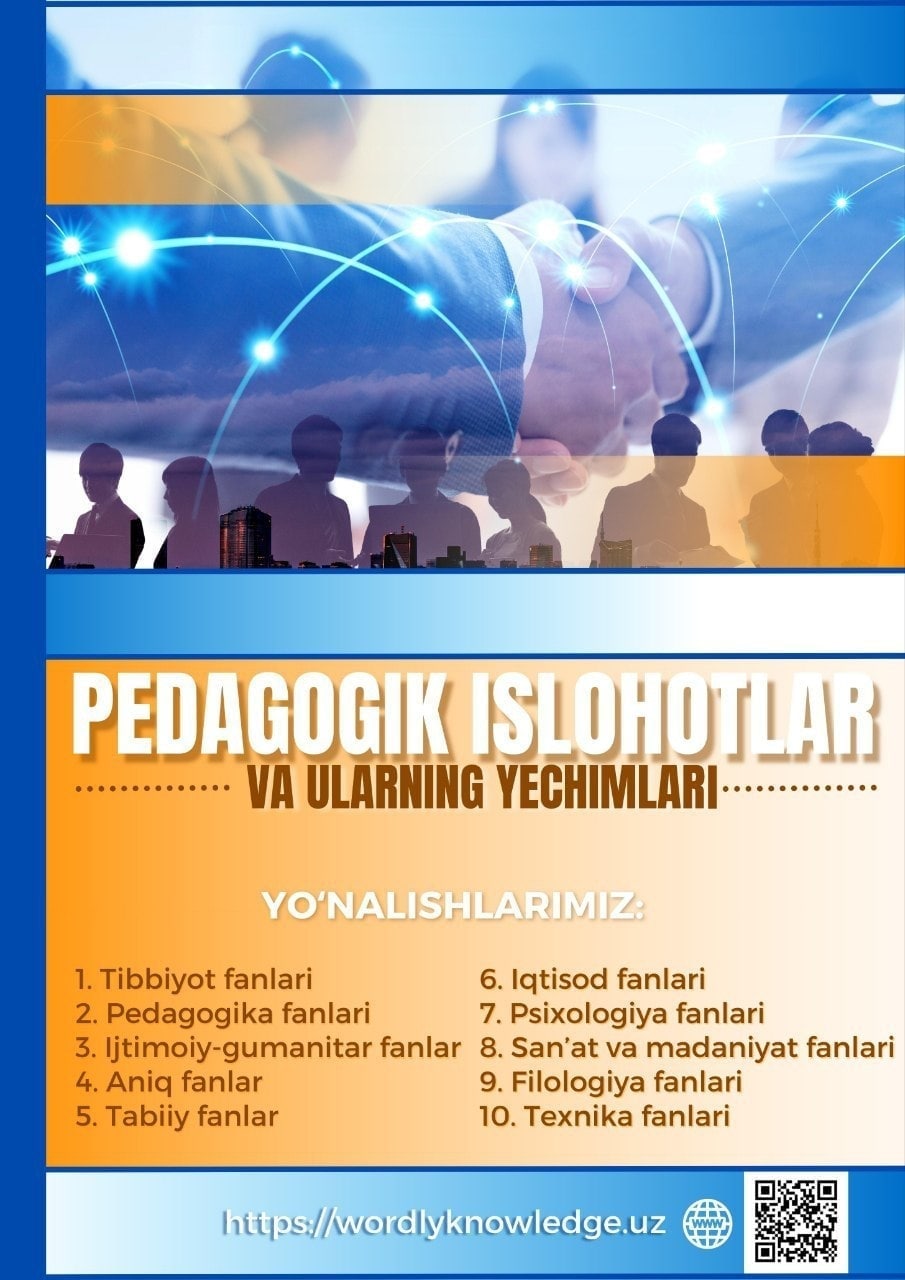THE ROLE OF DISCIPLINE AND EDUCATION IN THE DEVELOPMENT OF THE PEDAGOGICAL PERSONALITY
Keywords:
Discipline, Education Pedagogical personality, Teaching practices Classroom management, Professional development, Reflective practice, Empathy, Communication, Student learning outcomes.Abstract
The importance of education and discipline in forming educators' pedagogical personalities is examined in this study. Maintaining order in the classroom, creating a disciplined learning environment, and providing a good example for kids all depend on discipline. Through professional development and ongoing learning, education provides instructors with the information and abilities they need to fulfill the varied needs of their pupils and adjust to changing pedagogical approaches. Strong educational personalities are also emphasized as requiring reflective practice, empathy, and good communication. Teachers can improve their efficacy in the classroom and have a beneficial impact on the learning outcomes of their students by incorporating discipline and education into their teaching practices.
References
Brookfield, S. D. (2017). Becoming a critically reflective teacher (2nd ed.). San Francisco, CA: Jossey-Bass.
Hattie, J. (2009). Visible learning: A synthesis of over 800 meta-analyses relating to achievement. New York, NY: Routledge.
Wong, H. K., & Wong, R. T. (2009). The first days of school: How to be an effective teacher (4th ed.). Mountain View, CA: Harry K. Wong Publications.
Larrivee, B. (2008). Development of a tool to assess teachers' level of reflective practice. Reflective Practice, 9(3), 341-360.

